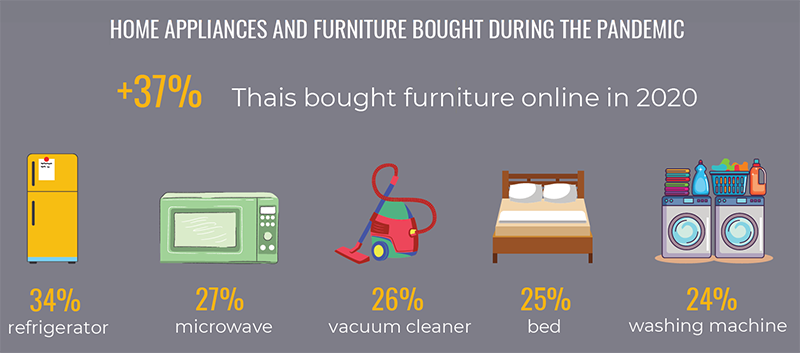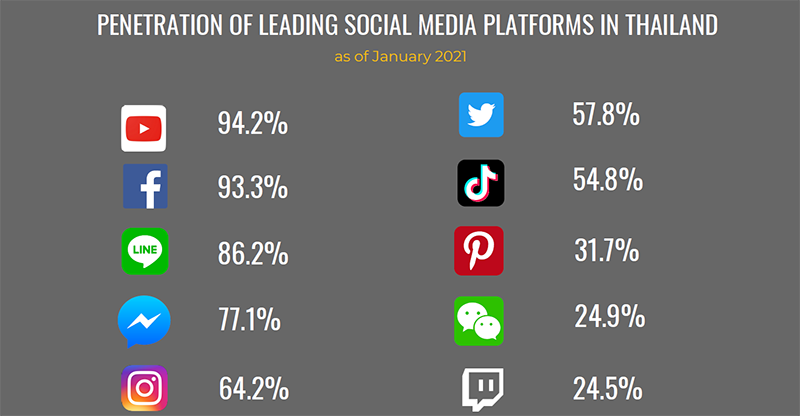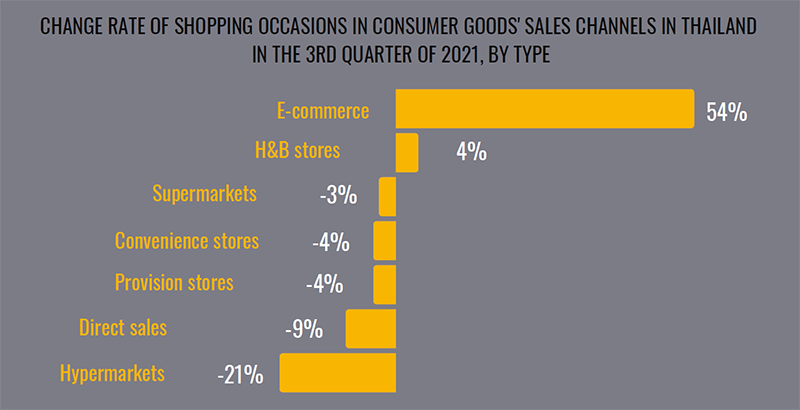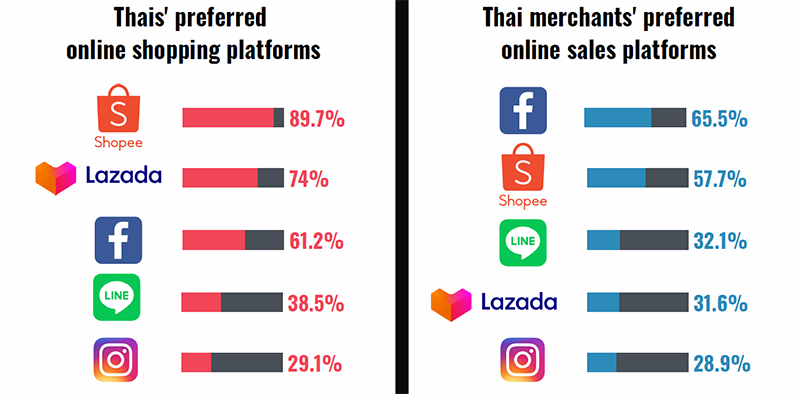Everything that has happened over two years of COVID-19 will have a long-term impact on business and as Thailand enters the third year, i-dac Bangkok’s Suchada Supakan examines four trends in marketing that brands should take note of.
The continued effects of the COVID-19 pandemic are making 2022 marketing predictions challenging. In the past 24 months, we’ve seen a significant shift in consumer behaviour and lifestyle.
Digital connectivity has helped to bridge physical distances and i-dac Digital Flash looks at how consumers have changed and what marketers should be looking out for this year. Brands can expect to see four trends.
Trend 1: Rearranging life
As a result of on-again-off-again lockdowns, Thai consumers have shifted their behaviours and mindsets in ways that are likely to be for the long term. Marketers need to relook how they have changed and identify what will affect consumer marketing going forward.
One change is the reconnection with the home environment. During the lockdown, consumers sought ways to make themselves more comfortable at home, reflected in stronger demand for home appliances and furniture.
As shown in previous editions of i-dac Digital Flash, Thai consumers’ online interests have shifted to home-related content and home-related influencers.


Brand takeaway
People are looking for a new lifestyle context and a significant change in behaviour is the adoption of the “smart life”, with a 30% increase in the number of new digital service users last year. Middle-to-upper income households want a smart home, surrounded by smart devices and home appliances, while ageing consumers have embraced online shopping and food delivery via “super apps”.
Get your brand closer to consumers’ everyday life as their daily needs grow. Physical and mental wellness is prioritised – aligned with other APAC countries – with 80% of Thai Gen Z focusing more on their self-care while balancing their happiness and responsibilities (i-dac and MI Group survey, 2021). A brand can add a little indulgence to everyday life by making consumers feel good about their purchases.
Trend 2: Social heritage revamped
Despite the maturity of Thailand’s social media penetration, there was an increase of three million social media users, or 5.8%, in January 2021 from a year ago. This indicates a shift in the social media audience profiles and behaviours, given the increasing types of social platforms and content.
As mentioned in the previous edition of i-dac Digital Flash, the pandemic has accelerated “The Age of Influence”, which is predicted to continue in 2022, considering the higher cost of digital media because of data privacy policies.

- Facebook still reaches a wide age range of target audiences but it has transformed into an information-update space in recent years, especially among young consumers.
- Instagram maintains its attraction among the same old friends, ranging from Gen Z to early-Gen X, and is especially appealing to Gen Z consumers who consider it their inspirational space.
- YouTube retains its popularity as a search engine and a source of entertainment, where the audience profile has expanded to a wider age range.
- TikTok is a rising star that was a popular social platform among lower-income consumers when launched but now has consumers of different ages, incomes and regions.
- Twitter is increasingly popular among younger Thai audiences and is an expressive space to connect with and support their idols; it is also a natural search engine of what’s trending.
Brand takeaway
Keep up with how today’s consumers interact with the different types of social media platforms and online content. Tailor online content format specific to each type of platform and target audience, as one size does not fit all and consumers’ social media behaviour can change at any time.
Trend 3: E-commerce set to drive growth
Accelerated by the pandemic, Thais of all ages and incomes are becoming more comfortable shopping online, with e-commerce channels – ranging from social commerce, e-commerce marketplaces, delivery apps, retailer e-commerce channels and Line – expected to drive business growth for several product categories such as consumer goods and high-involvement products.
According to Thailand’s Ministry of Digital Economy and Society, e-commerce marketplaces appear to be the preferred shopping channel for Thai consumers, with social commerce the preferred online sales channel.


Social commerce will continue to thrive in 2022.
Thailand already ranks fifth in Southeast Asia for the highest share of social shoppers (GWI, How consumers in APAC use social media for shopping, 2021), with over 1.2 million monthly active Facebook Shop users (Bangkok Post, 2021) and over 300 million monthly visitors globally (Bangkok Post, 2021).

Brand takeaway
With the e-commerce marketplace a must for any product category in Thailand’s consumer market, brands must seek ways to facilitate social spaces – starting from brand/product discovery to brand interactions and purchase triggers.
Instant messaging apps are necessary for e-commerce operation, considering that Thais prefer to have a conversation with a merchant before purchasing.
Remember to tailor AR and VR e-commerce to the appropriate category, such as high-involvement products, to encourage instant purchase decisions, and excite Thai online shopping fanatics to “CF” (confirm) during live events.
Trend 4: The metaverse hype
It is not possible to talk about 2022 without mentioning the metaverse.
The first two years of the pandemic can be considered the development stage for many Thai brands to implement AR and VR marketing as a way to connect with Thai consumers.
We see some interest from Thai consumers in response to this new marketing evolution but it still doesn’t appear to meet their expectations yet. The metaverse is forecast to increase competition in AR and VR marketing but how consumers will respond to life in the metaverse is unclear, so marketers should keep an eye on it in 2022.

This article is part of an ongoing series with i-dac Bangkok based on their quarterly i-dac Digital Flash series, featuring insights into trends in Thailand.
The series is led by the Digital Strategic Planning unit:
- Suchada Supakan, Head of Digital Strategic Planning
- Natthaporn Loetsakulcharoen, Senior Manager of Digital Strategic Planning
- Laddawan Thanlap, Senior Digital Strategic Planner
i-dac Bangkok is a digital agency specialising in performance media, branded content and data marketing.

